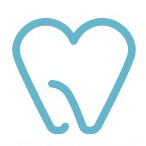The Importance of Teeth Cleaning and Precautions in Detail
Many people will hear dentists say when they visit the dental department: 'Your periodontitis is severe, go and have a dental cleaning.' 'Before getting orthodontic treatment, go and have a dental cleaning.' 'Before getting pregnant, go and have a dental cleaning.' 'Have your teeth cleaned twice a year.' Dentists always emphasize the benefits of dental cleaning. Why is dental cleaning so important?
Why is dental cleaning necessary?
What is the purpose of dental cleaning? How is it done? Does dental cleaning cause tooth abrasion? Does dental cleaning make gaps between teeth larger? Does dental cleaning cause loose teeth? What are the precautions after dental cleaning? Before answering these questions, let's first understand 'dental calculus'.
Formation of dental calculus
There are two main components in the mouth, saliva, commonly known as 'saliva', and ubiquitous bacteria. When calcium in the saliva comes into contact with bacteria, dental calculus will form on the teeth. Dental calculus is generally yellow, and if you have the habit of smoking, it will be yellowish-brown. Unlike a toothbrush that can remove the white plaque on the surface of the teeth, dental calculus is hard like a small stone and can only be removed by professional dental instruments. Moreover, a very small number of dental calculus can detach from the tissue due to lack of perseverance. Dental calculus stimulates the periodontal tissue, compresses the gums, causing periodontal diseases, and even leading to bad breath. Even if you brush your teeth diligently every day, it is difficult to avoid the formation of dental calculus because some narrow areas cannot be cleaned thoroughly. Therefore, dental cleaning is very necessary.
The process of dental cleaning
In simple terms, teeth cleaning is a deep cleaning of the teeth, which can be divided into three steps: 1. Ultrasonic scaling: Using the vibration of an ultrasonic scaler to break up the tartar on the teeth, achieving a cleaning effect. 2. Interdental brushing: Using special dental floss to clean the interdental spaces and hard-to-reach areas, removing residual tartar and food debris. 3. Polishing: Removing bacteria and stains from the tooth surface using a polishing cup, making the teeth smooth and white.
Benefits of teeth cleaning
Teeth cleaning has the following benefits: 1. Tartar removal: Teeth cleaning can effectively remove tartar from the teeth, maintaining oral hygiene. 2. Prevention of oral diseases: Regular teeth cleaning can prevent oral diseases such as periodontitis and bad breath. 3. Maintaining tooth health: Teeth cleaning can promote healthier teeth and prevent problems such as loose teeth and enlarged gaps between teeth.
Common misconceptions about teeth cleaning
Although there are many benefits to teeth cleaning, there are still many misconceptions about it: 1. Misconception 1: Teeth cleaning will wear down the teeth. In fact, the harsh sound produced during teeth cleaning is the normal sound of the ultrasonic scaler. The vibration of the ultrasonic scaler is used to break down tartar, not to grind the teeth. 2. Misconception 2: Teeth cleaning will make the gaps between teeth larger. Healthy gaps between teeth are covered by gums. If tartar is not regularly removed, these hidden killers will occupy the gaps and cause gum recession. Therefore, when tartar is removed, the gaps between teeth become wider. 3. Misconception 3: Teeth cleaning will loosen the teeth. After teeth cleaning, teeth will not loosen in a healthy periodontal environment. If teeth become loose after teeth cleaning, it indicates the presence of periodontal disease. The presence of tartar prevents the teeth from feeling loose. Only when the tartar is removed and the teeth lose support will the feeling of loose teeth occur.
Post-teeth cleaning precautions
After tooth cleaning, pay attention to the following matters: 1. Avoid eating spicy foods to avoid mouth irritation. 2. Avoid excessive brushing and use a soft-bristled toothbrush to brush gently. 3. Regularly revisit the dentist for oral examinations and timely detection and treatment of oral problems. In summary, tooth cleaning is beneficial to the teeth without any harm. Despite some misconceptions, by clarifying these misconceptions, we hope that everyone can value the importance of tooth cleaning and adhere to the precautions after tooth cleaning to maintain oral health.

